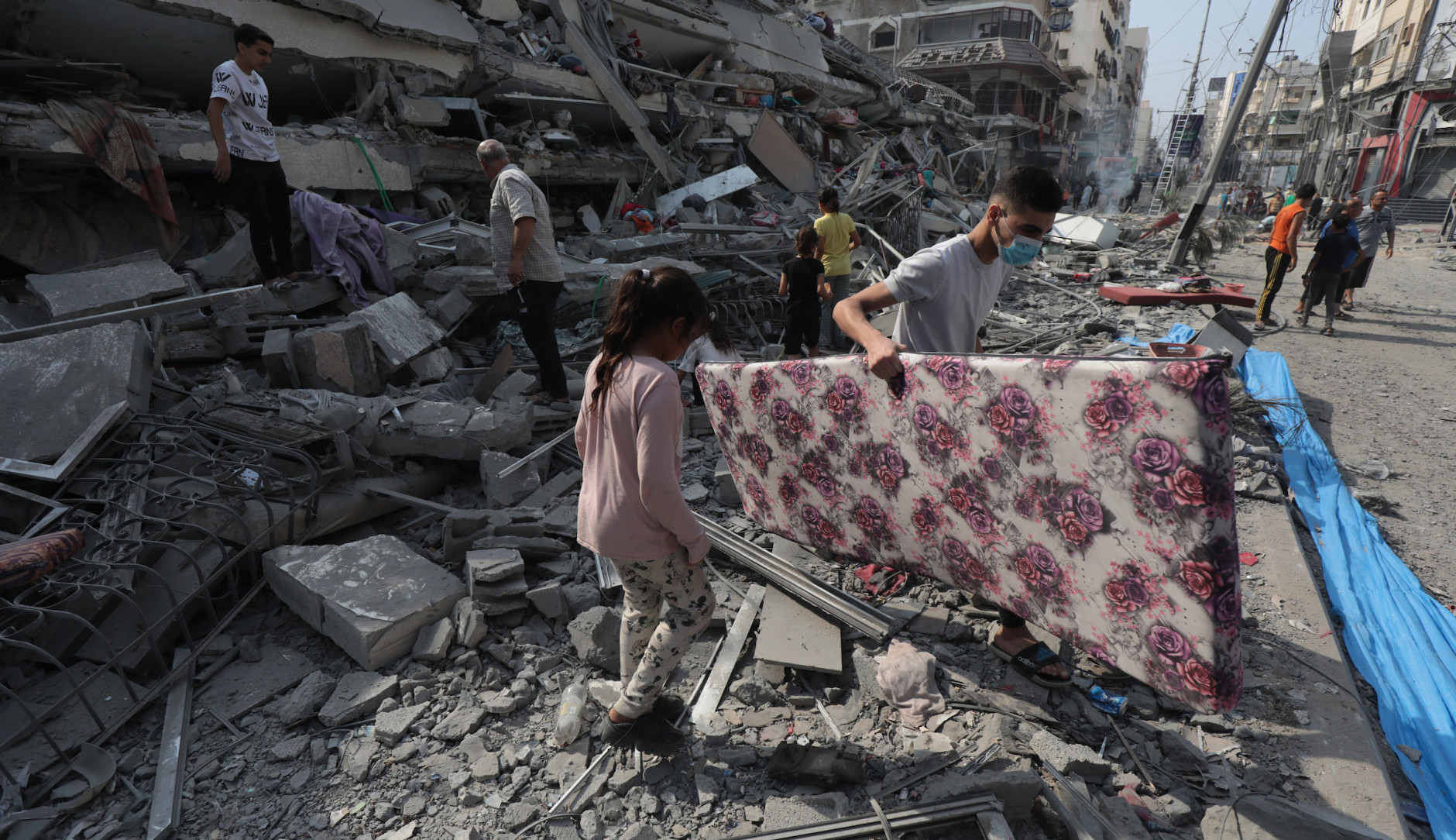Any barriers to comprehensive humanitarian aid delivery in Gaza must be lifted
At the beginning of this month, 118 Palestinians were killed and 760 injured while attempting to access humanitarian aid in the west of Gaza City. This incident illustrates how desperate the Palestinian people are to receive food and how norms, order and humanitarian international law have been so degraded in Gaza that the only responsible action is to stop the fighting now.

At the beginning of this month, 118 Palestinians were killed and 760 injured while attempting to access humanitarian aid in the west of Gaza City. The “flour massacre” is unjustifiable and we support the demand from the European Union diplomatic service for an impartial international investigation.
This incident illustrates how desperate the Palestinian people are to receive food and how norms, order and humanitarian international law have been so degraded in Gaza that the only responsible action is to stop the fighting now.
There is no time to waste to conclude the ceasefire negotiations and for all sides to stop the hostilities. Hamas must release the remaining hostages now and end its rule over Gaza; the Israeli government must halt its military offensive immediately, while also stopping opposing Palestinian statehood.
An Israeli ground offensive in Rafah, where over a million Palestinians have found temporary refuge with nowhere else to go, cannot be justified. The ruling of the International Court of Justice (ICJ) states that Israel has an obligation to prevent genocide in Gaza and must act accordingly. Humanitarian aid must flow unhindered, any barriers to adequate aid delivery must be lifted. Water and food, amongst other basic services, must be provided. All involved parties must comply with the ICJ ruling and the international community must act accordingly. In this sense, the EU must accept its responsibility to prevent breaches of international law, as also highlighted by last month’s Dutch court ruling, banning the export of F35-fighter parts to Israel. Importantly, the EU and its Member States have a moral obligation to facilitate the flow of humanitarian aid.
Any decision on funding of the United Nations Relief and Works Agency for Palestine Refugees (UNRWA) has to be made in exactly this context. The accusations made in Israeli intelligence reports about UN staff colluding with terrorists in the October 7 attack are serious and they are being investigated by the UN’s Office of Internal Oversight Services (OIOS). Meanwhile UNRWA fired the accused staff members but the US and several EU countries have suspended their funding to UNRWA nevertheless, with remaining resources projected to last until the end of March. This will undercut lifesaving services delivered by UNRWA as well as other organisations such as the World Food Programme (WFP), that heavily rely on UNRWA’s irreplaceable infrastructure.
UNRWA has operated in the Palestinian territories and surrounding countries for more than seven decades, providing a wide range of basic services including food, healthcare, and education. While problematic aspects of the organisation's operations are rightly raised, UNRWA is also by design an organisation on which many Palestinians rely in the absence of a sustainable political solution.
We believe that in this moment of a humanitarian catastrophe, underlying political issues must not be allowed to undermine or override the humanitarian mission of UNRWA. Ensuring that aid reaches civilians is imperative under international humanitarian law. Therefore, we call on donors who have suspended their funding to revisit their decision (as some states such as Sweden, Australia, and Canada have done) or, at the very least, redirect those funds to reach Gaza through credible alternative means. However, as several humanitarian organisations working in Gaza have declared, it is impossible to substitute UNRWA's infrastructure at a time of famine, disease and atrocious war.
Gazan civilians need unhindered humanitarian aid now. Safeguarding the integrity of relief organisations and making aid available to those in need must be complementary, not mutually exclusive goals.
Photo Credit: ©Palestinian News & Information Agency (Wafa) in contract with APAimages